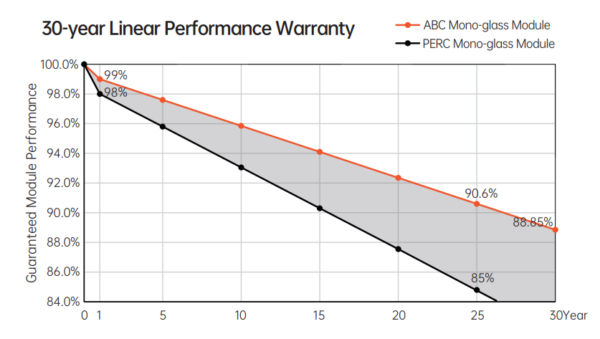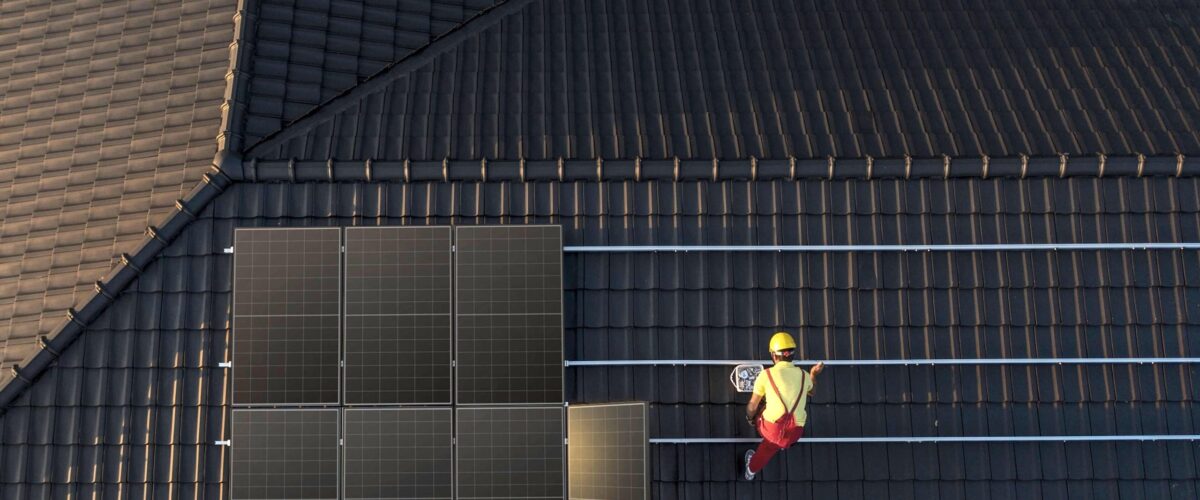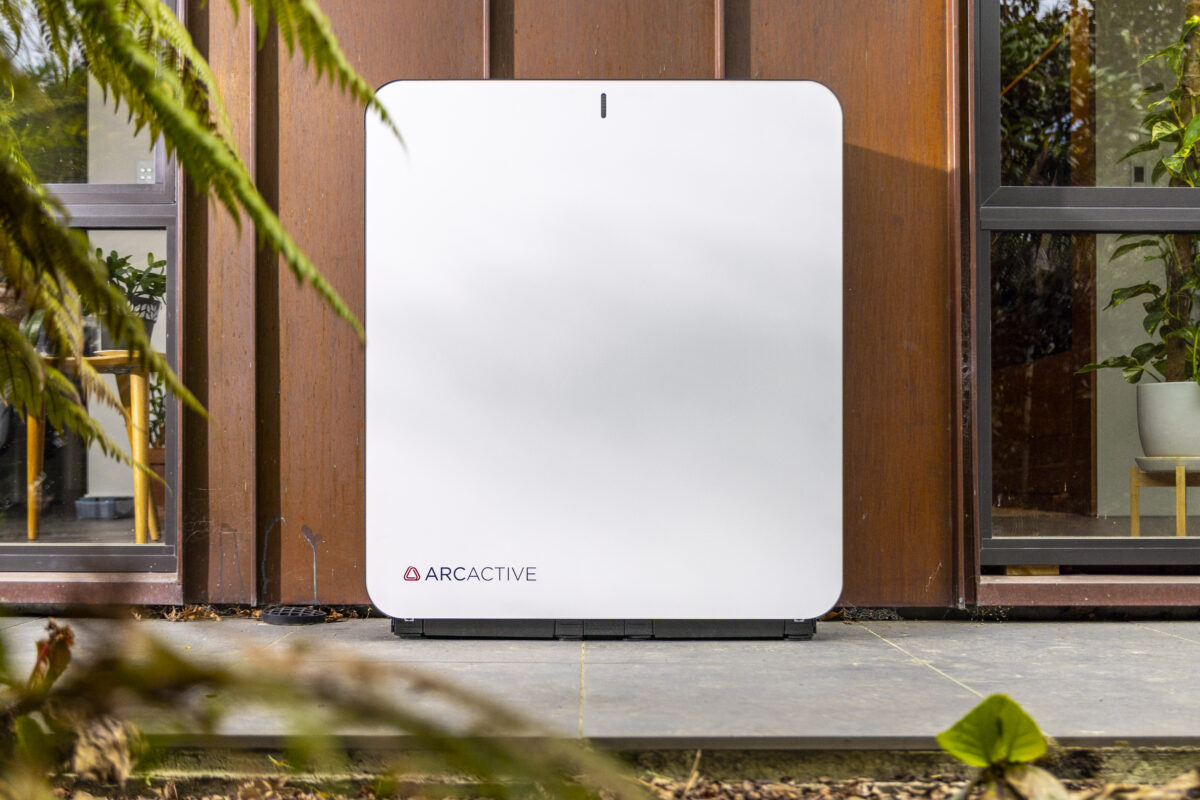China-headquartered solar manufacturer, Aiko, has achieved Clean Energy Council (CEC) approval for its 470 W Neostar 2P solar panel, which includes the black frame white backsheet panel featuring Aiko’s advanced n-type all-back contact (ABC) technology.
This approval makes the N-type module the first solar panel in stock in Australia to deliver such high power in a standard residential module size—offering unprecedented efficiency and savings without increasing the panel’s footprint.
Delivering 23.6% efficiency within a compact format measuring 1,757 x 1,134 millimetres, the innovative design allows consumers to maximise their small-scale technology certificates (STCs) by adding more power onto their rooftops without requiring additional space.
The ABC range boasts a 25.15% conversion efficiency, certified by Germany-headquartered company TÜV-SÜD, and which equates to between 20 – 30 W of additional power compared to a traditional panel of comparable size, and the first crystalline modules to surpass the 25% mark.

Image: Aiko
AIKO Australia and New Zealand Country Director Thomas Bywater said Aiko is committed to delivering technology that makes life easier for installers.
“The 470 W Neostar panels allow installers to work more efficiently, completing jobs faster and with greater ease. This means they can finish their workday sooner and spend more time with their families,” Bywater said.
AIKO APAC Head Mr. Alex Hang said as a technology leader and Tier 1 module supplier, Aiko is setting a new standard in the industry by continually pushing the boundaries of what solar technology can achieve.
“Our innovations open doors for customers with limited roof space to go solar, empowering more people to contribute to a carbon-free era while maximising the benefits of solar energy,” Hang said.
Aiko’s n-type ABC modules are also equipped with shade optimisation technology which is enabled by the cells bypass diode function through the control of p-n junctions and the voltage of cells, with the effect that individual shaded solar cells are bypassed with affecting the string.
This content is protected by copyright and may not be reused. If you want to cooperate with us and would like to reuse some of our content, please contact: editors@pv-magazine.com.








By submitting this form you agree to pv magazine using your data for the purposes of publishing your comment.
Your personal data will only be disclosed or otherwise transmitted to third parties for the purposes of spam filtering or if this is necessary for technical maintenance of the website. Any other transfer to third parties will not take place unless this is justified on the basis of applicable data protection regulations or if pv magazine is legally obliged to do so.
You may revoke this consent at any time with effect for the future, in which case your personal data will be deleted immediately. Otherwise, your data will be deleted if pv magazine has processed your request or the purpose of data storage is fulfilled.
Further information on data privacy can be found in our Data Protection Policy.